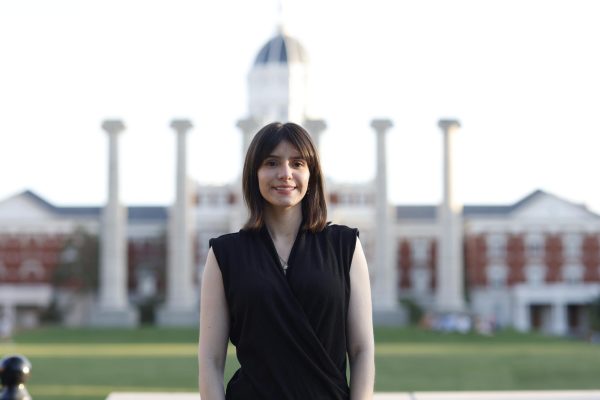For more than half a century, MU students have organized demonstrations on campus
1970
On the evening of May 6 more than 2,000 MU students and faculty members gathered in Rollins Field to commemorate the lives lost during the shooting at Kent State University. Following the memorial service, 1,000 students continued their efforts to honor the four unarmed students killed two days prior by hosting a sleep-in on the field.
1978
Following a U.S. District Court ruling, allowing MU Gay Liberation to move from off-campus to on-campus operations, the group marched to its first on-campus meeting on April 20. The ruling also granted the ability for the organization to apply for Missouri Student Association funds.
1987
Student activists constructed a shantytown and occupied Francis Quadrangle for over a year, urging the university to divest all funds in South Africa. During this period, 41 protestors were arrested, with some serving jail time. Public resistance and deliberation over divestment began in 1978, and continued until Dec. 18, 1987, when UM Curators voted to divest all funds in South Africa entirely.
1990
The Legion of Black Collegians, with over 150 participants, marched in protest of racial injustices at MU during the Homecoming parade. This movement boycotted all Homecoming events, and demonstrators gathered at the Reynolds Alumni Center to push for institutional reforms addressing racial discrimination at MU.
2015
In the 2015 fall semester, student activist group Concerned Student 1950 called for the resignation of UM System President Tim Wolfe following criticism of his lack of response to multiple acts of racism on campus. Jonathan Butler, MU graduate student, participated in a weeklong hunger strike, demanding Wolfe resign. MU football boycotted operations in support of Butler, an effort backed by head coach Gary Pinkel and athletic director Mack Rhoades. Wolfe resigned early in November.
2024
Several MU student organizations, including Mizzou Students for Justice in Palestine, among others, organized an emergency protest and walk-out to show support for people in Gaza and student protesters nationwide. The movement expanded from campus to the greater Columbia community, with local groups like Mid-Missouri Peaceworks and Columbia Jews for Ceasefire in attendance as well.








